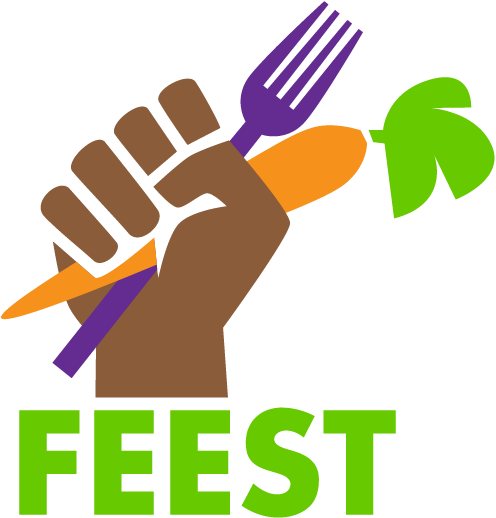What are you really celebrating
Opinion article by FEEST journalism intern, Celina Jackson
The dusty cookbooks are getting pulled off of the shelf and the grocery stores stocking up on turkeys. It’s that time of year again – Thanksgiving; and many Americans are preparing for however their family may or may not celebrate the holiday.
As everyone learned in elementary school, the tradition of Thanksgiving dates back to the 17th century, when European immigrants were settling in the Native American lands of the “New World”.
The Pilgrims were British members of the English Separatist Church who faced religious prosecution in England during this time. They fled to the Netherlands and then America in search of a new home where they could freely practice puritan Christianity.
After landing at Plymouth Rock in December 1620, the Pilgrims experienced a difficult first winter. More than half of the settlers died within the first year. However, the help of the Wampanoag people helped ensure a bountiful harvest for the Pilgrims the fall of 1621. This success was celebrated with a Thanksgiving feast between the whites and the Native Americans.
This harvest celebration didn’t become a regular affair until the late 1660s, by the time of which it didn’t include Native Americans.
We were all shown the happy storybook pictures of Pilgrims and Native Americans joining together over their meal. Unfortunately, this isolated occasion wasn’t the common experience during this time.
The entirety of the relationship between European settlers and the Native peoples was much different. The way that the media portrays Thanksgiving and the symbolism surrounding this holiday is misleading and wrongly implies a sense of unity and companionship between the two groups.
It’s true that there were times when the white and Native American people formed alliances; but overall, the settlers’ actions resulted in devastation of the Native population and destruction of tribal culture. The near-genocide of native peoples during the founding of this country is one of America’s greatest shames.
It is for this reason that some people annually boycott traditional Thanksgiving celebrations and instead opt for an alternative approach.
One of these people is local Seattle artist, Gabriel Teodros, who has helped host several “ThingsTaken” celebrations on the fourth Thursday of November for several years now.
“The types of events we’ve done over the years for ThingsTaken range from small dinners with chosen family to larger musical events in Seattle and Los Angeles, bringing people together in the spirit of celebrating Indigenous peoples continued resistance,” said Teodros.
The intention of these gatherings is partly to bring people together through music and food, but also to acknowledge the original people whose land we now occupy.
“I think it’s important to recognize what was given and what was taken and I believe it’s crucial for all people who in any way fight for their freedom in this land to also fight for Indigenous sovereignty.”
On the other hand, Thanksgiving is typically one of the biggest home-cooking holidays of the year, when families and communities come together over a meal and give thanks for all that they have in their lives. Home-cooked family dinners are much more rare now than they were in the past.
The biggest reason for this is most likely time management. Many parents work busy schedules and don’t have the option of coming home in time for dinner, let alone the time to cook a full meal.
With hectic schedules, many people find convenience in time efficient options such as fast food or frozen dinners. These options won’t be as wholesome or nutritional as food you cook at home.
Family dinners have also been linked to lower risk for obesity, as parents watch what their kids are eating instead of the children snacking in front of a TV. Similarly, meals around the dinner table make eating disorders less common.
Most importantly, family dinners offer time for communication and relationship building. This is even more crucial for families who don’t have usually much time to spend together.
So when you are sitting down to eat dinner on Thanksgiving, in which ever you may or may not celebrate the day, remember what the holiday is truly representing. Don’t buy into the Disneyfiedversion of the story, acknowledge what really happened and how we all came to be on this land.
Take the holiday into your own hands and use this opportunity to spend more time with your family or friends or members of your community. With the day off of work and school, it’s a chance for people who don’t always have the luxury of eating together to do so. Family meals are more important than they may seem.
